When Zurich smelled the smoke of the ‘red terror’
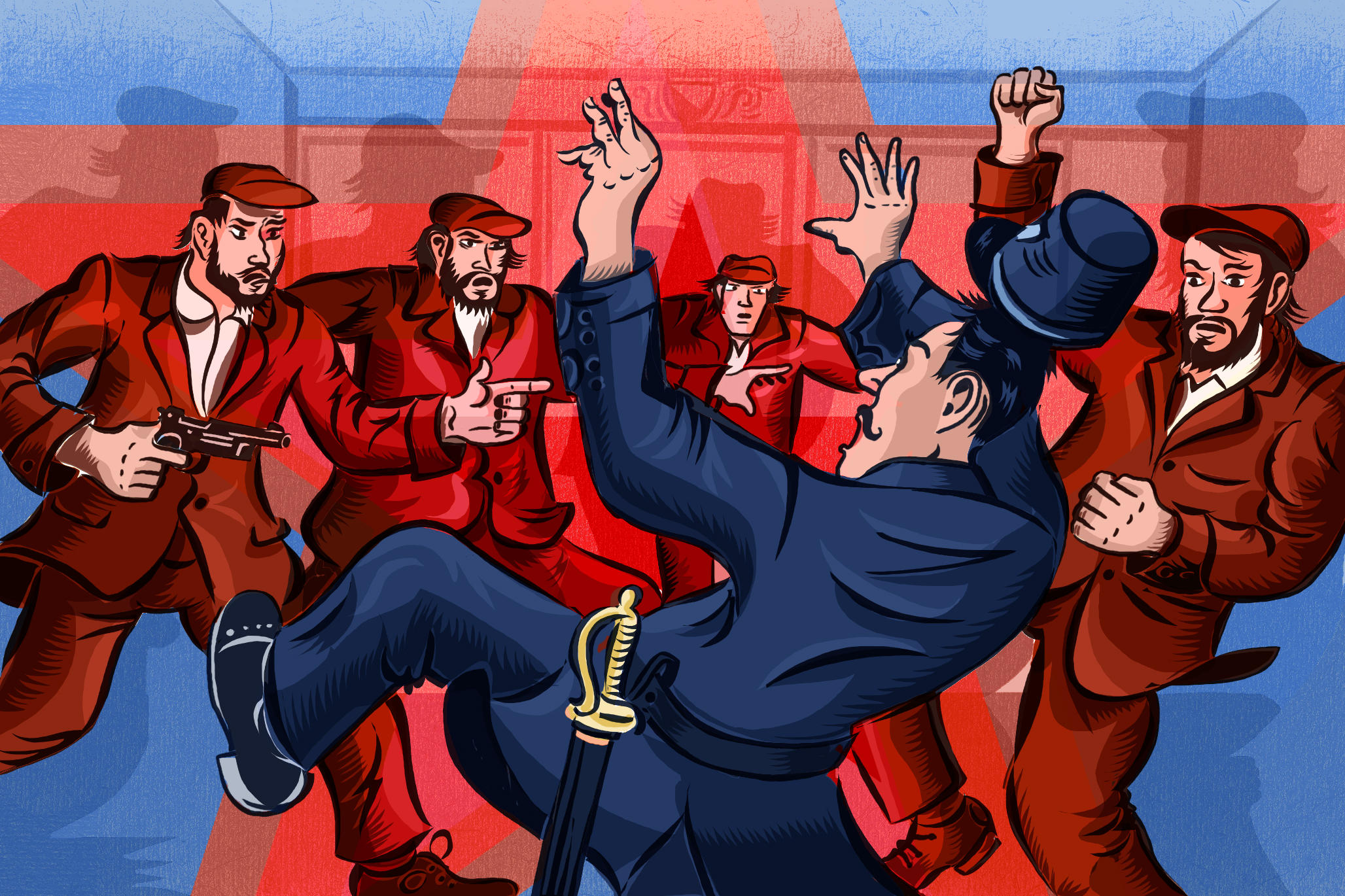
In 1907 an attack on the police barracks in Zurich and a bomb blast that injured children sparked national outrage. Were the Russians behind it?
For police recruit Fritz Beck June 3, 1907 is a big day. At last, he can put on a uniform and perform his first night watch at the police barracks in Zurich. Shortly after midnight, four men ring the bell at the main gate and ask for admission. When he politely inquires what they wanted, one of the strangers pulls a pistol and storms into the lobby.
Beck is running for cover. He desperately tries to open the door to the guards’ room, but his rattling is in vain. His colleagues have holed themselves up and don’t even think about letting him in. In his desperation, he shouts for help. The only response he gets are several shots.
‘No doubt – it must have been the Russians’
The first bullet smashes a glass pane, the second pierces through an office door, and the third gets embedded in the wall. When the alarm goes off, the intruders run away. The pandemonium did not even last five minutes. Even though the entire police corps immediately launches a pursuit, the fugitives have dropped off the face of the earth.
A trembling Beck reports to his superior that the attackers must have been Russians without a doubt. He could see their long hair peeking out from underneath their caps. The commander immediately launches a raid during which fifty Russians are dragged out of bed and arrested. However, due to the lack of incriminating evidence, they are released the same afternoon.

Bomb makers in a residential area
At the exact same time, three children find a coloured tin in a gutter in the worker’s quarters of Zurich’s Aussershihl district. They are curious and try to open it. The tin explodes with a deafening bang and injures the children on their faces and legs.
“Russian winds are starting to blow in Switzerland!” the Neue Zürcher Zeitung newspaper writes expressing its outrage.
The country is up in arms. “Zurich is under the Red Terror”, the Zürcher Volksblatt newspaper reports while the socialist Volksrecht condemns the “criminal rascality of hare-brained people” who laid a bomb in Zurich’s most populated quarters.
The journalists agree that the bomb makers must be Russian immigrants. After all, it was not the first time that Russians living in Zurich experimented with deadly explosive devices. A Russian student had tried to shoot the former Russian interior minister in a Swiss hotel the previous year. Ever since the Russian exile community has been under general suspicion.
A scapegoat is found
The media suspects that the attack on the police barracks was an attempt by Russian revolutionaries to free Georg Kilaschitzki. Kilaschitzki, a young Pole, was involved in the murder of a high-ranking Russian official and fled to Switzerland after the assassination.
When the spies of the czar’s regime tracked him down in Zurich, the Russian government demanded his extradition. Kilaschitzki claimed that the assassination was political and that he had right to political asylum.
However, the Federal court which ruled on this case did not agree. It said that his motive was “revenge for torturing labourers” and that the murder was the result of a “territorial spirit”, so nothing stood in the way of his extradition.
The political left was outraged by this verdict. The Berner Tagwacht newspaper protested and called it a “labour of love” for the Russian government. “Our simple, stiff-minded predecessors would spit on the heads of today’s magistrates and so-called statesmen,” the paper wrote. The whole of Europe was fulminating. The International Socialist Bureau in Brussels insulted the Swiss judges and called them “the tsar’s henchmen”. “Do the Swiss people really want to humiliate themselves to such an extent and become the executioner’s servant?” the paper stated. But it was all in vain. Kilaschitzki is arrested and awaiting extradition.
The media is very quick to connect the attack with the bomb explosion. The Russians were suspected of disposing of all the incriminating evidence in fear of house searches. “Russian winds are picking up in Switzerland!” the Neue Zürcher Zeitung reports.
“The air is toxic and destructive. It’s full of dynamite and explosives that shatter not only the physical but also destroy the moral.” The paper calls on Switzerland to stop giving shelter to such dangerous scoundrels and asks for donations to foot the medical bills of the injured children.

Swiss anarchist
Once Beck got over his initial shock, it dawns on him that he has seen one of the attackers before. It is the infamous anarchist Ernst Frick, who likes polemicizing against the army and calls it “the court dog of capitalism”. He has also publicly attacked the rich and threatened that they would be tied to lampposts once the revolution was over.
However, when wanted for questioning, Ernst Frick is nowhere to be found. His landlady says that he had left town a few days ago to look for employment.
When Frick shows up again after a few weeks, he is called in for questioning. He claims that he spent the night of the attack in the Swiss capital Bern, more precisely in the house of Margarethe Faas-Hardegger, a functionary of the Swiss trade union federation. Despite his alibi, he gets sentenced for murder because the police found bullets in his room that were identical to the ones fired in the police barracks.
The unionist’s alibi
In front of the Zurich jury, Margarethe Faas-Hardegger repeatedly confirms Ernst Frick’s alibi. He had even notified her beforehand about his visit. She was writing correspondence that night and was waiting for him. “He arrived at 3 a.m. and after we had chatted about political issues, he went to the guestroom to sleep.”

The judge is sceptical and inquires: “Aren’t these unusual working hours for a labour secretary?” Her response is cool, calm and collected: “I like the modern working style which is not tied to office hours.” Being a trade union official, her alibi has more weight than the bullets found in Frick’s room. Frick walks out of the courtroom as a free man.
Four years later, the Zurich “bomb affair” takes an unexpected turn. In his gloomy prison cell in Germany, Swiss anarchist Robert Scheidegger is losing his mind; he is homesick and misses his wife and children terribly. After the prison priest encourages him to do so, he decides to wipe the slate clean and start a new life. He confesses that together with his friend Ernst Frick and two other anarchists, he attacked the police barracks to free Kilaschitzki.
Switzerland has a bomb trial
Scheidegger says that during the escape he panicked and threw away the bomb that injured the innocent children the following day. When the transcript of his confession arrives in Zurich, the public prosecutor orders the immediate arrest of Ernst Frick and Margarethe Faas-Hardegger.
In April 1912, Robert Scheidegger is extradited from Germany to Switzerland. He is in a pretty bad way. The prosecutor concludes that he suffers from paranoia as well as religious delusions and calls an end to the proceedings. However, since offences involving explosives fall within the competence of the federal government, federal prosecutor Otto Kronauer lives up to his reputation as a ruthless “anarchist eater” and presses charges against Frick for using explosives for “criminal purposes”.
The bomb trial makes headlines for weeks. Doctors spend hours discussing Scheidegger’s mental state in the crowded courtroom while explosive experts bicker about the level of danger presented by the tin bomb.
Around thirty witnesses are questioned, one of them is Faas-Hardegger. She gets tangled up in her own contradictions, which are dangerous not only for her friend Ernst Frick, but also for herself. If Frick gets sentenced, she could be faced with criminal proceedings for giving false testimony.
Frick is found guilty. Compared to the ten years’ imprisonment federal prosecutor Kronauer has filed for, he gets away lightly with only one year in prison.
Shortly after, Margarethe Faas-Hardegger is sentenced to four months in prison for giving false testimony. She also has to pay CHF 1,200 for the proceedings, which back then was a substantial amount. She not only loses her bourgeois respectability, but also the support of the organised labour movement for protecting a violent anarchist.
Only Skorpion, the magazine for radical young socialists is jubilant: “She proudly walked to the dungeon knowing that she only did what she had to do. Pharisees and Scribes, priests and miserable worms were hissing ‘villain’ behind her. However, millions of young people from the new generation were cheering and called her a ‘heroine’.”
Margarethe Faas-Hardegger’s life was not the only one that took an involuntary turn. Police recruit Beck hangs up his uniform and returns to his original profession as a locksmith.
Georg Kilaschitzki, the subject of the Zurich anarchists’ amateur rescue operation, got the worst deal. Shortly after the attack, he was quietly extradited to Russia. Apart from the rumour that he was shot during an escape attempt in Russia, nobody in Switzerland ever heard from him again.
Terrorist violence in Switzerland
A look at Swiss history shows that politically motivated violence was more frequent in the past than we might imagine today.
The first terrorist attack in this country was the assassination of the Austrian Empress Elisabeth, who was stabbed to death in 1898 by an anarchist named Luigi Luccheni. “Sisi”, as she was called, was the first victim of anarchist terror in Switzerland, but she was certainly not the last.
In the early 20th century Switzerland experienced a wave of terrorist attacks. Anarchists raided banks and even a police building in Zurich, tried to blow up trains, blackmailed industrialists, carried out bomb attacks and assassinated political opponents. Most of the attackers were foreign: Russians, Italians, Germans and Austrians who had sought political asylum in Switzerland.
The Swiss government reacted by deporting undesirables and making laws more severe. In 1894, in what became known as the “Anarchists Law”, penalties for crimes using explosives were increased, and preparing for them was made a criminal offence. But Switzerland refrained from tightening its asylum legislation, which ensured ongoing protection for people wanted by police elsewhere.
Adapted from German by Billi Bierling

In compliance with the JTI standards
More: SWI swissinfo.ch certified by the Journalism Trust Initiative








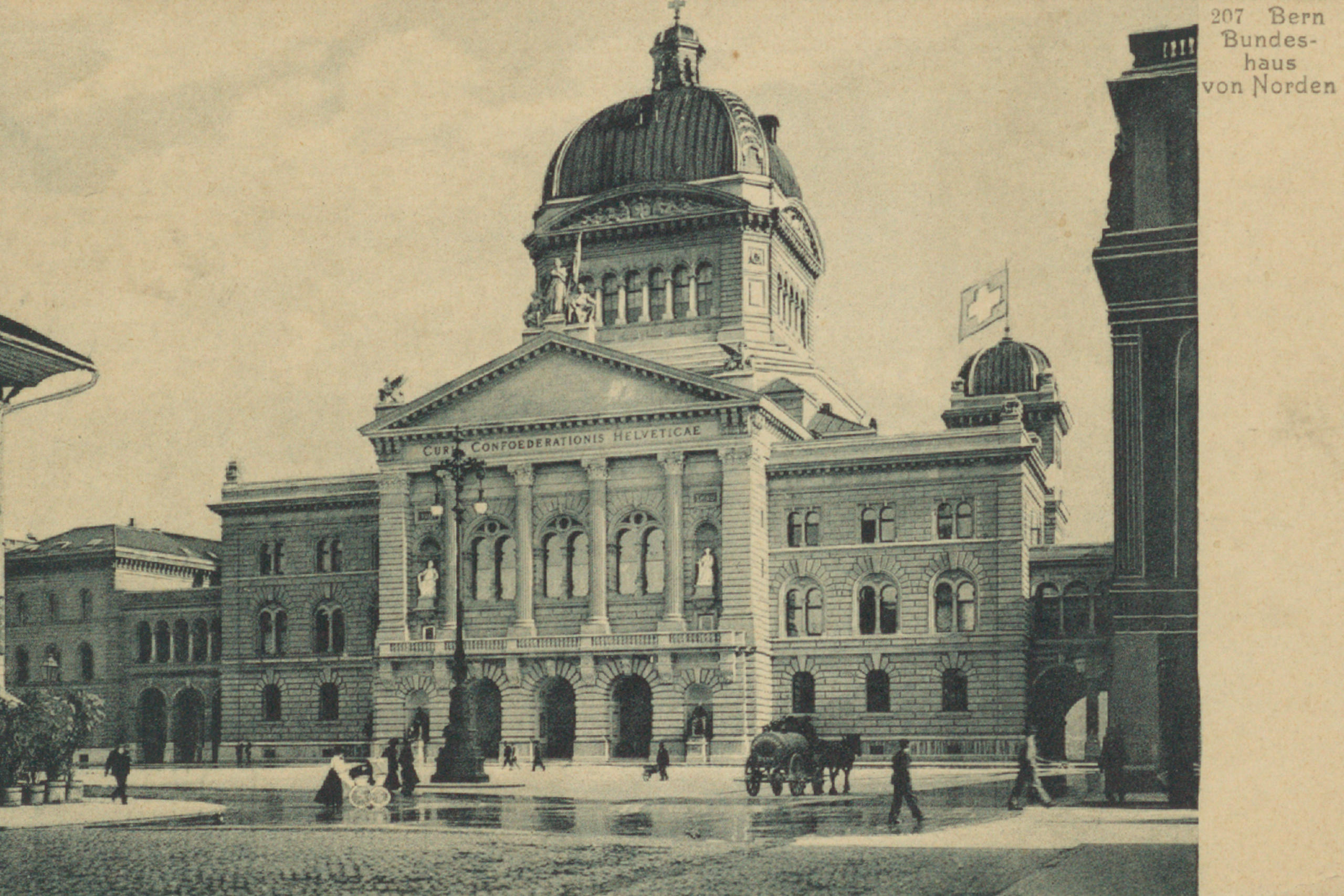
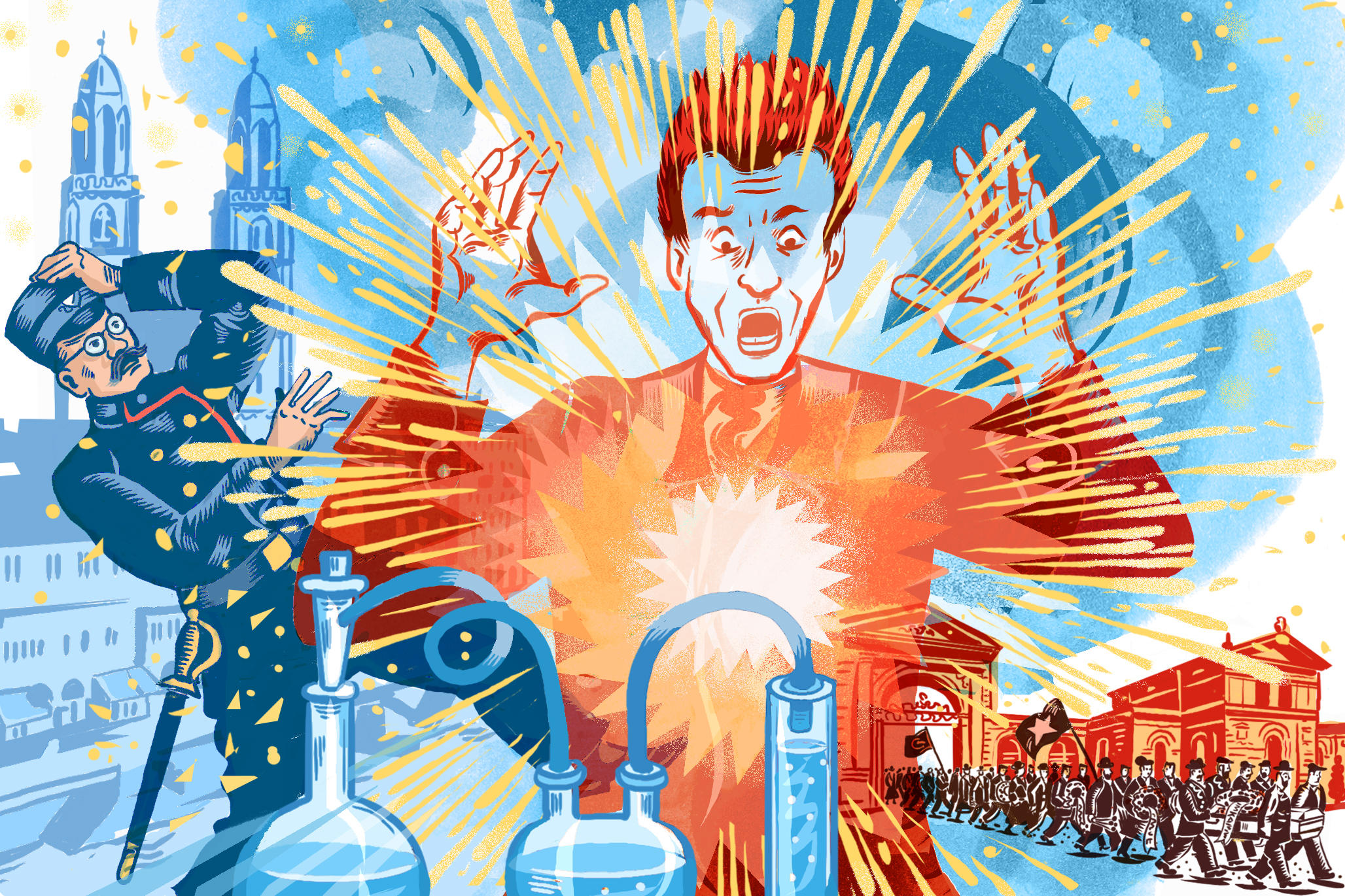
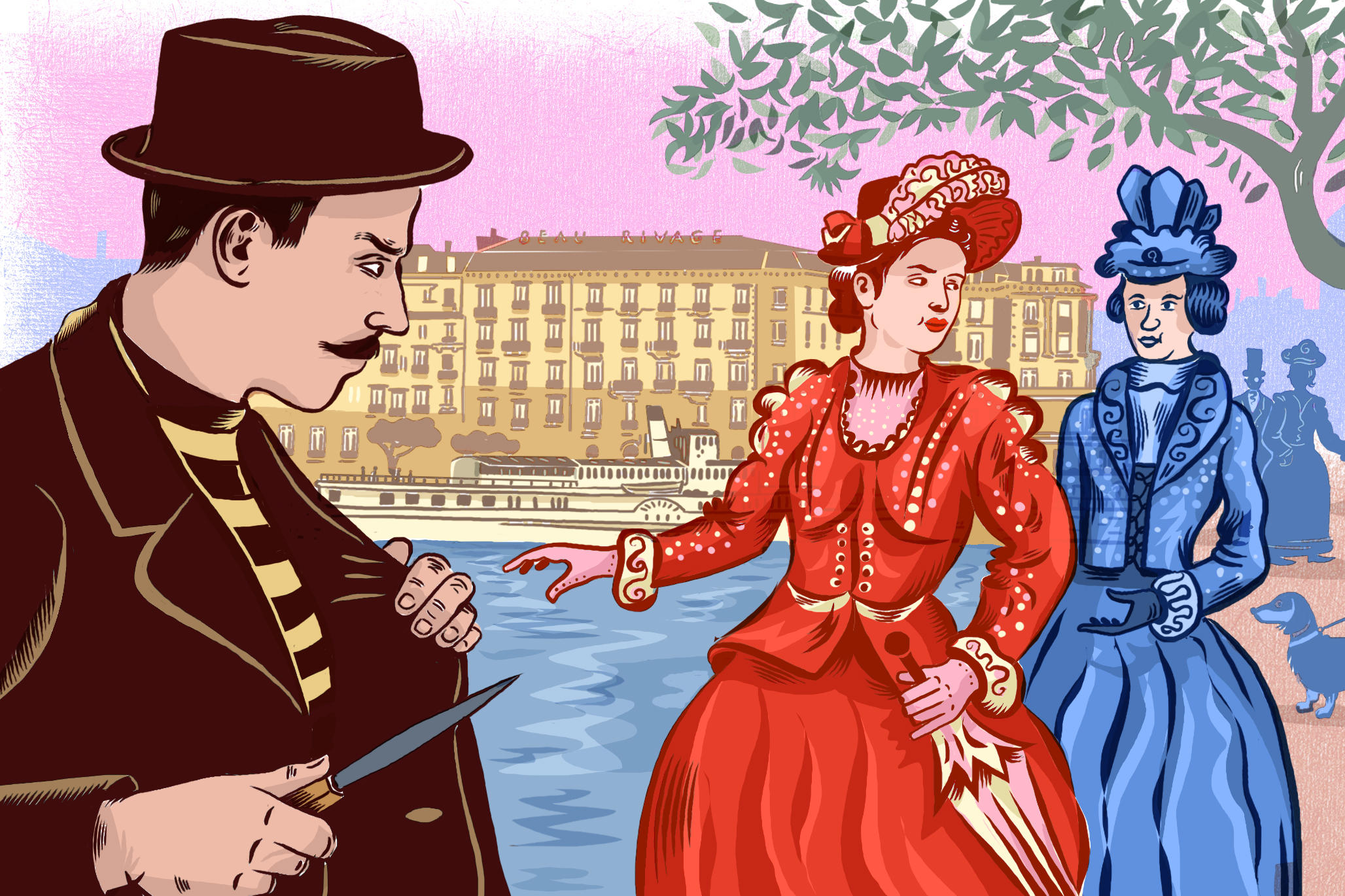
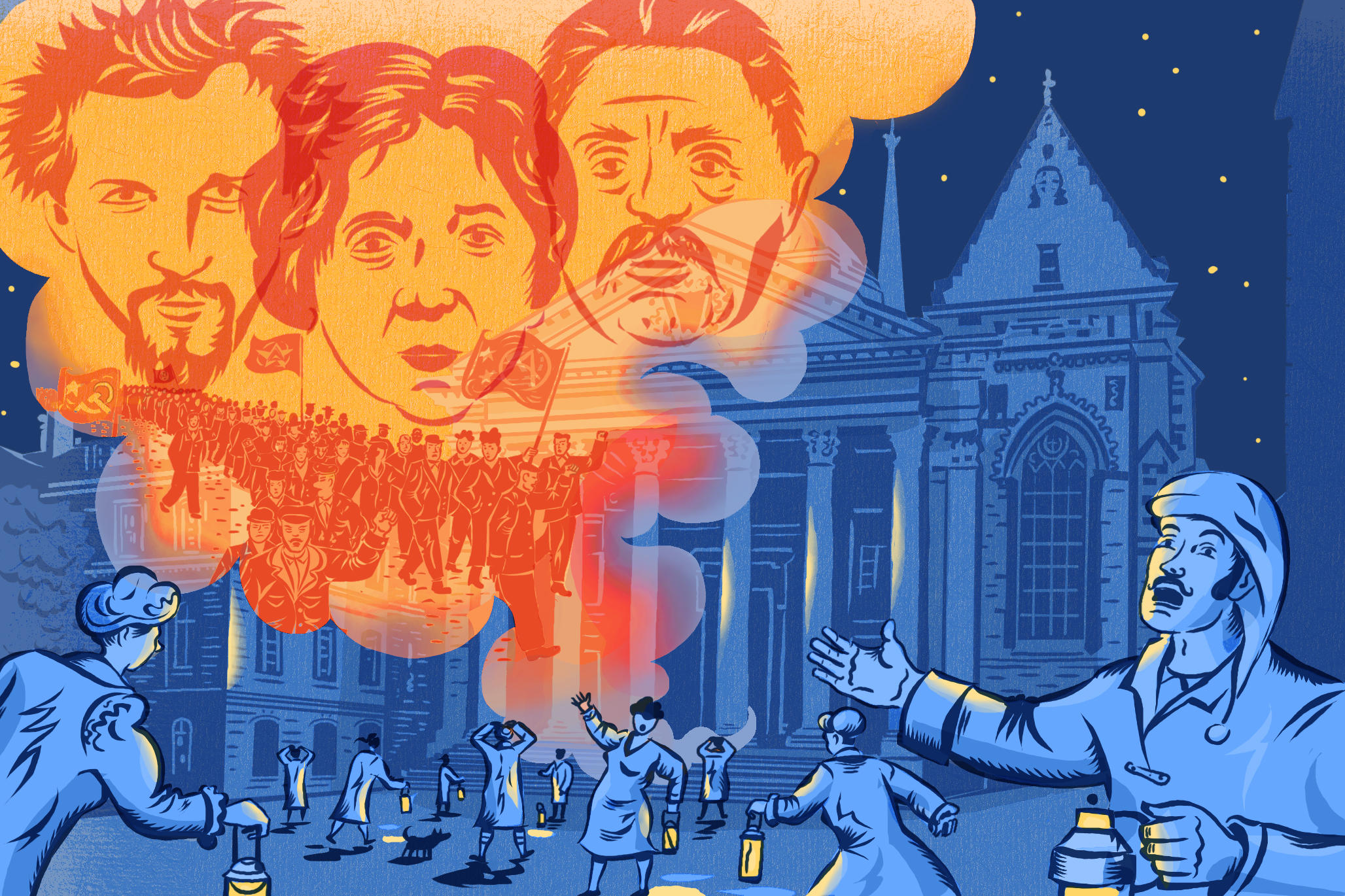

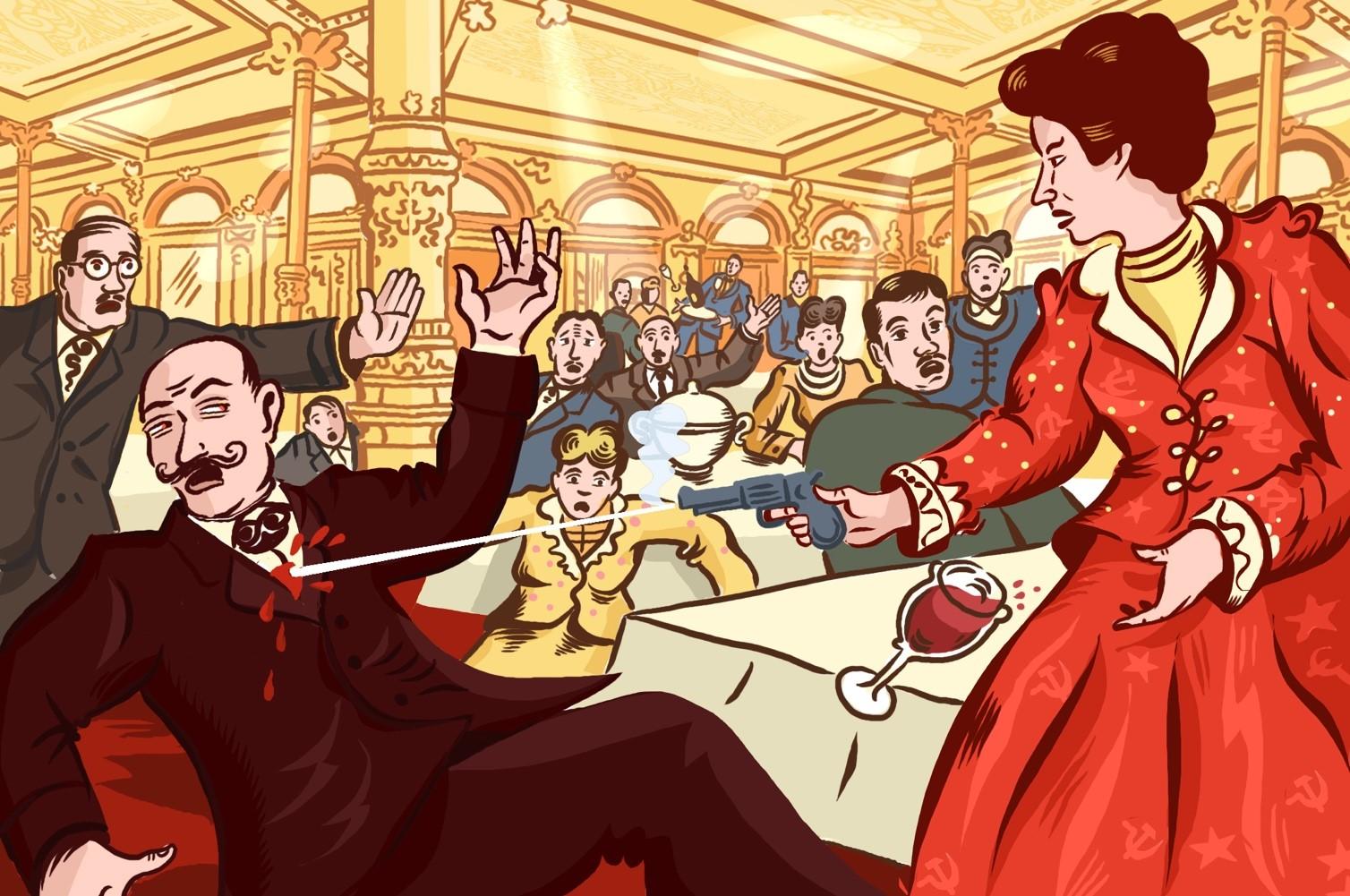
You can find an overview of ongoing debates with our journalists here . Please join us!
If you want to start a conversation about a topic raised in this article or want to report factual errors, email us at english@swissinfo.ch.